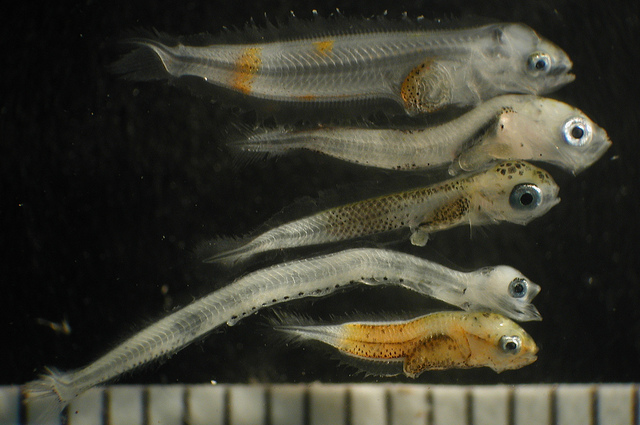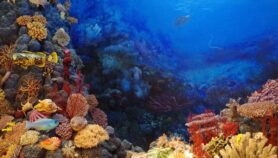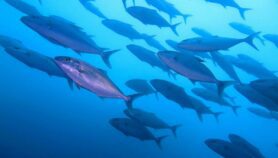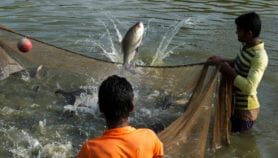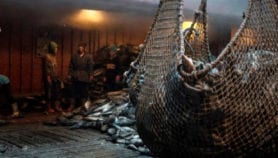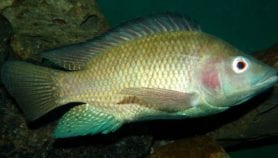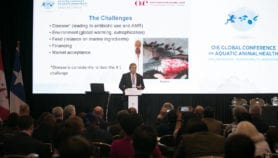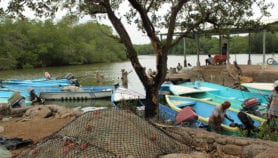By: Claudia Caruana
Send to a friend
The details you provide on this page will not be used to send unsolicited email, and will not be sold to a 3rd party. See privacy policy.
[NEW YORK] Native fish hatchlings will find it more difficult to use sound to reach secure shelters in the oceans of the future that are acidified by carbon dioxide (CO2), threatening fish populations.
Research by Ivan Nagelkerken and colleagues at the Environment Institute of the University of Adelaide, in Australia, showed that in high CO2 conditions, barramundi larvae move away from the ocean noises to which they are normally attracted. Instead, the larvae become attracted to sounds produced by the wrong sort of habitats or to artificial ‘white noise’.
“Elevated CO2 interferes with the brain functioning of fish so that they do not respond to natural cues and are attracted to unnatural cues”
Ivan Nagelkerken
Barramundi or Asian sea bass, an important commercial fish, are born at sea and migrate as juveniles and adults to fresh, protected areas. Hatchlings listen to the sounds of coastal ecosystems to guide them to sheltered waters.
In their study, which was published last month (April) in Scientific Reports, the researchers compared the responses of barramundi larvae in marine tanks with different CO2 levels: those predicted at the turn of the century, against current day CO2 levels. They found that the larvae were attracted to the sounds of tropical estuaries under current conditions, but deterred by the same sounds under simulated future ocean conditions.
“Moreover, under elevated CO2 conditions, larval barramundi were attracted to the wrong sounds,” Nagelkerken tells SciDev.Net.
“Elevated CO2 interferes with the brain functioning of fish so that they do not respond to natural cues and are attracted to unnatural cues,” adds Nagelkerken.
Sean Connell, a co-author of the article, explains that if ocean acidification causes larvae to be attracted to irrelevant sounds, they could end up in the wrong habitat or in inhospitable places. “This could also result in smaller adult fish, with significant impact on fisheries.”
According to Jeff Clements, a visiting postdoctoral fellow at Fisheries and Oceans Canada in New Brunswick, Canada, “given that this experiment was conducted under laboratory conditions that manipulated CO2 levels, while holding all other conditions constant, the results observed can be confidently attributed to CO2”.
Clements says it is difficult to predict if the results would be the same with other fish. Although one overarching conclusion of ocean acidification studies is that different species respond differently to elevated CO2 conditions, he says, similar results have been reported in studies with different coral reef species. “So it is likely that the larvae of other reef fishes would respond similarly,” says Clements. “More studies would be needed to apply these results to fish species from other regions.”Ultimately, he believes this work is one piece in a bigger ecological puzzle. “Ecological processes do not happen in isolation. It is not realistic, therefore, to try and ‘pinpoint’ a single thing to place blame on for a change.”
This piece was produced by SciDev.Net’s Asia & Pacific desk.


